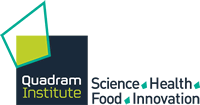Dr S Robinson
No more applications being accepted
Funded PhD Project (Students Worldwide)
About the Project
Breast cancer affects 1 in 8 women in the UK and is a leading cause of cancer mortality. Its prevalence is rising, potentially due to increasing population age but also due to effects of diet and lifestyle. Epidemiological data indicate the benefits of diets rich in plant-derived polyphenolic compounds but experimental data remain sparse, primarily employing cell-based models. Our recent work from has demonstrated a key role for gut microbiota in mammary cancer, via modulation of the mucosal and systemic immune systems. Co-applicant Prof Cathie Martin has generated a suite of experimental tomato strains enriched for the production of specific polyphenols, eg anthocyanins, resveratrol, isoflavones. Diets based on these strains have been shown to influence the gut microbiota ecosystem.
Our objectives are:
1) Evaluation of the impact of diets based on polyphenol-enriched tomatoes on mammary cancer development and metastasis in mice.
2) Investigation of changes in gut microbiota in tumour-bearing versus control mice on the different diets.
3) Evaluation of the effects of diets on systemic immunomodulatory factors and immune cell repertoires in tumours.
This PhD studentship at the Quadram Institute Bioscience sets out to bring together aspects of the expertise of the Norwich Research Park, namely plant bioactives, gut microbiota and mouse cancer models, to ask the critical questions of whether and how do dietary factors and gut microbes interact in the development and spread of breast cancer.
Training:
The project is multi-disciplinary and students will receive training in microbiology, in vivo mouse tumour models, immunology, bioinformatics and mathematical modelling approaches to understand how diet-induced changes in the microbiota affect breast cancer progression and tumour immune surveillance.
For further information and to apply, please visit our website: https://quadram.ac.uk/about/student-opportunities/
Funding Notes
This project is awarded with a 3-year Norfolk Cancer Charity BIG C PhD studentship. Tuition fees are covered for UK/EU rate only (£4,327.00 2019/0 rate). Students liable for international tuition fees will need to fund the difference between the UK/EU fee level and the international fee level (£18,700. 2019/0 rate). A stipend will be provided for each year of the studentship (2019/0 rate is £15,009.00). Research training support funding is available.

 Continue with Facebook
Continue with Facebook

